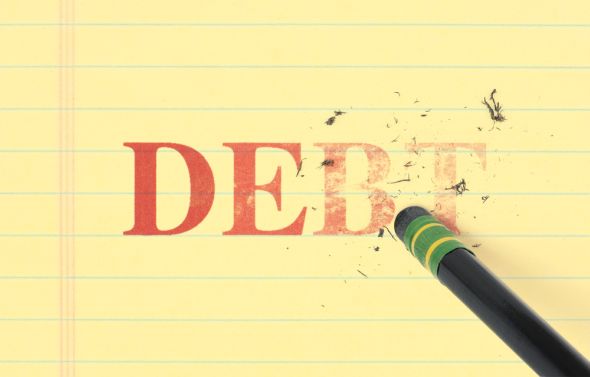If you listen to Dave Ramsey, you know that debt is a four-letter word. Apparently, however, it is a mystery for many Americans, not to mention a buzzword for politicians, a burden for students, a necessity for most homeowners and a reality for 70 percent of Americans.
But despite this fact, 30 percent of those in debt have no plan to pay it off, even though 82 percent of respondents cited gaining financial independence as a goal in their lives. These are the results from a recent national survey conducted by Fifth Third Bank, which examined the financial beliefs and behaviors of American adults.
The survey also revealed how the three largest generations in America differ in their understanding and management of savings, budgeting, retirement planning and credit.
“At Fifth Third, we were curious to discover how knowledgeable Americans are about their personal finances,” said Jada Grandy, senior vice president and Community Reinvestment Act strategies director, Fifth Third Bank. “The results of this survey give insight into financial literacy in America, as well as the needs of customers at different key stages of their lives. This knowledge arms Fifth Third with the tools to support our customers at every step on their journey to financial independence.”
The survey, commissioned in recognition of National Financial Literacy Month, revealed the following insights about American financial literacy:
Americans are confident in their financial expertise. Forty-eight percent of Americans consider themselves to be financially savvy. Based on survey questions examining financial savings and planning, many have the right to be confident.
Forty-five percent of respondents know 20 percent of income should be set aside for savings. More than half of those surveyed know an emergency fund should hold six months of living expenses. Forty-six percent of Americans agree retirement savings should begin in a person’s 20s.
But that knowledge isn’t reflected in real-life decisions. With high marks for understanding financial concepts, Americans have the know-how to make informed decisions. Unfortunately, they aren’t applying the perceived understanding to their own finances.
Forty-seven percent of respondents frequently live paycheck to paycheck. Two-thirds of Americans don’t have six months of savings in their emergency fund. Thirty percent don’t have an emergency fund at all. More than half of respondents don’t contribute to a 401K, IRA or other retirement plan.
Debt reflects the priorities of each generation. One in four survey respondents feel they are in “financial hardship” from their debt. While credit card payments are the top identified debt across all age groups, the second highest debt for each generation reveals interesting insights into their priorities.
Thirty-nine percent of millennials have student loan debt. Thirty-seven percent of Generation X respondents are paying off car loans. Thirty-four percent of baby boomers are still in debt for their mortgage.
Americans aren’t ready to retire. Eighty-four percent of Americans know their retirement savings should reflect their age, expenses, standard of living and health status, yet only half know the exact amount of their current retirement fund. Concerning trends from each generation show retirement may be a rocky road ahead for the majority of Americans.
Two-thirds of baby boomers, those currently reaching retirement age, are in credit card debt. Those on the tail end of Generation X will begin retiring in the next 15 years, but two-thirds don’t see themselves in excellent financial standing for the milestone. Only 36 percent of millennials know how much money is saved in their retirement account.
“It’s encouraging to see that Americans are generally knowledgeable about basic finance concepts,” said Grandy. “However, there is a clear gap between understanding savings, budgeting and debt relief tactics and implementing them in one’s life. Learning how to transfer financial management from a textbook to a personal bank account is the key to empowering oneself financially.”
Other key findings:
- 55 percent of respondents know how much money is recommended for an emergency fund.
- 69.3 percent of respondents do not have six months of living expenses saved in an emergency fund.
- 55.2 percent of respondents do not contribute to a 401K, IRA or other retirement plan.
- 49.9 percent of respondents know how much money is currently in their retirement account.
- 69 percent of baby boomer respondents are in credit card debt.
- 70 percent of Generation X respondents did not agree with the statement “I consider myself in excellent financial standing for retirement.”
Thanks for reading CPA Practice Advisor!
Subscribe Already registered? Log In
Need more information? Read the FAQs
Tags: Financial Planning




